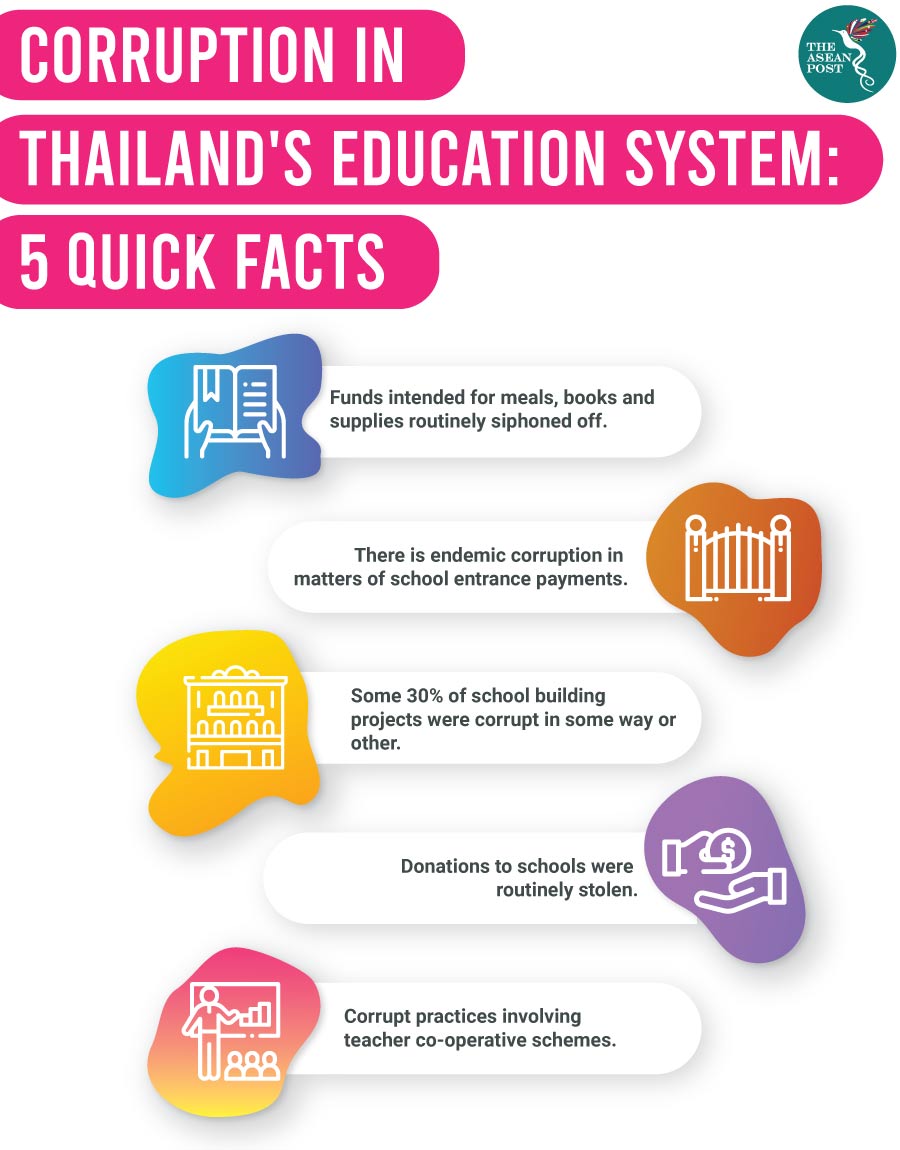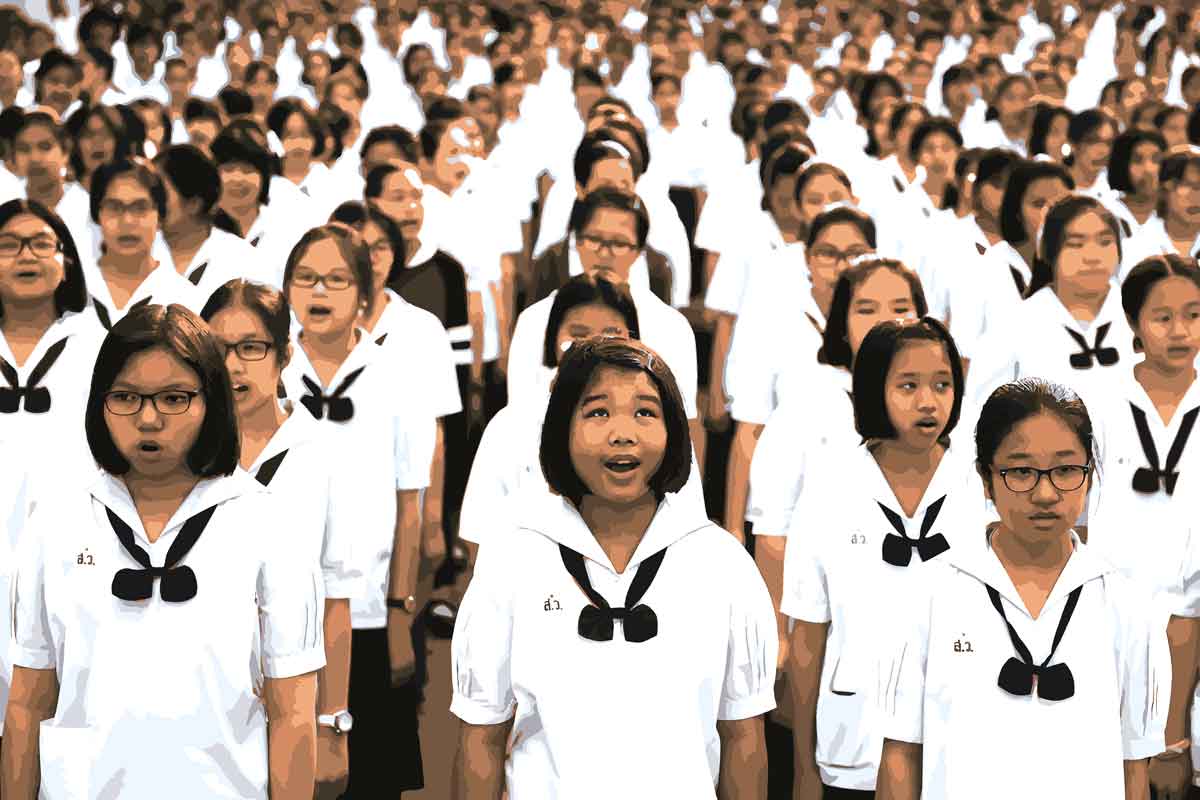Early in October last year, Thailand’s cabinet at the time approved the transfer of three senior head officials from the country’s Ministry of Education following a probe into alleged malfeasance in relation to the construction of the Songkhla Lake Aquaculture Research Centre, an aquarium and marine research centre in the southern province of Songkhla.
Earlier in March, an embezzlement scandal going back to 2008 involving scholarships from the Sema Phatthana Chiwit Fund worth US$3.7 million was exposed. Then in June, a preliminary investigation found irregularities in the school lunch programme allegedly committed by a school director in Surat Thani. Money was misappropriated and students were fed lunches consisting of nothing but noodles and fish sauce on some days.
The fact of the matter is that Thailand has had to grapple with corruption in education for quite some time now. Just recently, Pornamarin Phromkert of Khon Kaen University produced a detailed two-year report on the matter concerning the provinces of Kalasin, Khon Kaen and Mahasarakham.
The report states that corruption is deeply embedded in the Thai education system with everyone from politicians down to staff owners creaming off tens of millions of baht from school budgets. Pornamarin noted that everyone was sticking their hands into the cookie jar.
As an example of low-level corruption Pornamarin cited a case where a shop wrote out a bill for 50,000 baht (US$1,621) but the school had paid just 5,000 baht (US$162) for supplies.
According to the report, funds intended to go to school meals, book purchasing, and school supplies were routinely siphoned off. There was also endemic corruption in matters of school entrance payments. Some 30 percent of school building projects were corrupt in some way or other. Funds for projects were diverted into the pockets of corrupt ministry officials and politicians all the way down to school directors. Donations to schools were routinely stolen. In addition, there were corrupt practices surrounding teacher co-operative schemes and especially in the procurement of football pitches for schools.

Relatively poor quality of education
Jacques Hallak and Muriel Poisson from the United Nations Educational, Scientific and Cultural Organization (UNESCO) once wrote that corruption in education is a system for personal gain which affects the quality of public goods and services, including the quality of education in different parts of the education system.
Meanwhile, Educational Policy and Administration expert David Chapman says that the more serious costs of corruption in education are incurred when children, unable to afford bribes, are denied access to schooling or examinations, talent is misallocated due to promotion being awarded on the basis of bribery rather than merit, and a generation of children come to believe that personal effort and merit do not count and that success comes through manipulation, favouritism and bribery.
It's no secret that Thailand is somewhat struggling in terms of providing quality education. This has even sparked dissent among some of the country’s youth who have demanded, among other things, that the government take a serious look at improving the education system.
The World Economic Forum’s (WEF) Global Competitiveness Index 2017-2018, did not paint the prettiest picture of the country’s education system either. For Higher Education and Training, Thailand was placed 57th out of 137 countries. Brunei was 67th, Cambodia was 124th, Indonesia was 64th, Lao was 105th, Malaysia was 45th, Myanmar was 108th, Philippines was 55th, Singapore was first and Vietnam was 84th.
Similarly, on the WEF’s Global Competitiveness Index 2018, Thailand was placed 66th for skills compared to 140 other countries.
If Hallak and Poisson were right in their assertion that corruption – especially in the education system - affects the quality of education, recent cases involving corruption in the education system in Thailand may indicate that this is one of the areas where the government should focus on if it intends to improve the quality of education.
So, does Thailand have one of the worst education systems in the world? Certainly not. But it’s also certainly not as good as it can be and it’s a pretty safe bet that the rampant corruption present in the system there is one of the reasons for that.
Related articles:
